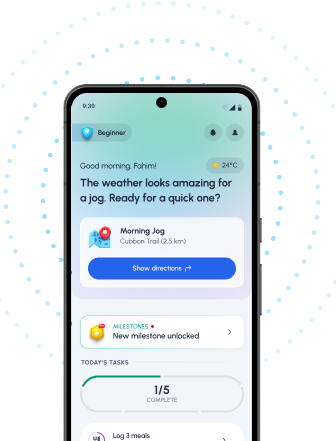Table of Contents
- Conquer Diabetes Through Strategic Weight Loss
- 6 Weight-Loss Strategies to Manage Diabetes
- Diabetes Management: Your Guide to Lasting Weight Loss
- Effective Weight Loss for Diabetes: A Step-by-Step Plan
- Is Weight Loss the Key to Diabetes Management?
- Frequently Asked Questions
- References
Living with diabetes can feel like an uphill battle, but you can take control of your health and well-being. This isn’t about restrictive diets or impossible goals; it’s about making sustainable changes that lead to lasting success. In this post, we’ll explore Conquer Diabetes: 6 Weight-Loss Strategies for Lasting Success, providing practical, actionable advice to help you manage your blood sugar and improve your overall quality of life. Ready to embark on this journey towards a healthier, happier you? Let’s get started!
Conquer Diabetes Through Strategic Weight Loss
Losing weight is a powerful tool in managing and even preventing type 2 diabetes, especially in regions like India and other tropical countries where the prevalence of this condition is rising. Up to 80% of Type 2 diabetes cases can be delayed or prevented through lifestyle changes, with weight management being paramount. This isn’t just about dropping numbers on a scale; it’s about building sustainable habits for long-term health.
Prioritize Whole Foods
Focus on a diet rich in fresh fruits, vegetables, and whole grains common in Indian and tropical cuisines. These foods are naturally lower in calories and higher in fiber, promoting satiety and aiding in blood sugar control. Limit processed foods, sugary drinks, and refined carbohydrates often found in readily available snacks. Incorporating spices like turmeric, commonly used in Indian cooking, can also offer additional health benefits. For specific dietary recommendations, you might find our guide on How to Lose Weight with Diabetes Diet Plan helpful.
Increase Physical Activity
Regular exercise plays a crucial role in weight loss and diabetes management. Aim for at least 150 minutes of moderate-intensity aerobic activity per week, incorporating activities suitable for the tropical climate, such as morning or evening walks or yoga. Even small changes, like taking the stairs instead of the elevator, can make a difference.
Seek Professional Guidance
Consult a doctor or registered dietitian to create a personalized weight-loss plan that aligns with your individual needs and cultural preferences. They can help you determine a safe and effective calorie deficit, address any underlying health conditions, and provide support and motivation throughout your journey. A tailored approach ensures sustainable progress.
Mindful Eating Practices
Practicing mindful eating, paying attention to hunger cues and eating slowly, can significantly contribute to weight management. This helps you avoid overeating and promotes better digestion. This is especially important in cultures where meals are often social events, potentially leading to increased calorie intake.
Stress Management Techniques
Chronic stress can negatively impact blood sugar levels and increase weight gain. Incorporate stress-reducing techniques like meditation, yoga, or spending time in nature into your daily routine. These practices are particularly beneficial in managing the demands of life in densely populated areas common in many tropical regions.
Sustainable Lifestyle Changes
Weight loss is not a quick fix but a journey requiring long-term commitment. Focus on building sustainable habits rather than resorting to crash diets. Celebrate your progress along the way, and remember that setbacks are a normal part of the process. Small, consistent changes accumulate to significant long-term success in conquering diabetes through weight loss. Consult with your local healthcare professional to develop a plan that best suits your needs and environment. For those interested in long-term remission, How to Reverse Diabetes Permanently offers valuable insights.
6 Weight-Loss Strategies to Manage Diabetes
Diabetes affects a significant portion of the population, with 61% of those diagnosed between the ages of 20 and 64, a crucial working age group in India and other tropical countries. Effective weight management is paramount for controlling blood sugar levels and improving overall health. This is especially pertinent given the prevalence of diabetes in these regions, often linked to dietary habits and lifestyle factors.
Prioritize Whole Foods
Focus on incorporating a diet rich in fruits, vegetables, and whole grains. These foods are naturally lower in calories and higher in fiber, promoting satiety and helping regulate blood sugar levels. Indian cuisine, for example, offers a wealth of options like lentils (dal), leafy greens, and various spices, which can be incorporated into healthy, diabetes-friendly meals.
Manage Portion Sizes
Even healthy foods can contribute to weight gain if eaten in excess. Mindful eating, paying attention to portion sizes, and avoiding overeating are crucial. Traditional Indian thalis, while diverse, can benefit from conscious portion control to avoid exceeding daily caloric needs.
Increase Physical Activity
Regular exercise is key. Aim for at least 30 minutes of moderate-intensity activity most days of the week. This could include brisk walking, yoga, or other activities readily accessible and culturally relevant in tropical climates.
Hydration is Key
Drinking plenty of water throughout the day helps in overall health and aids in weight management. Water is often overlooked but plays a crucial role in digestion and feeling full.
Monitor Blood Sugar Levels
Regularly monitoring your blood sugar levels helps you understand how different foods and activities affect your body. This allows for adjustments to your diet and exercise routine for optimal blood sugar control. For more detailed tips on effective diabetes management, check out 10 Proven Tips to Effectively Manage Diabetes | Simple Guide.
Seek Professional Guidance
Consult a doctor or registered dietitian to create a personalized weight loss plan tailored to your specific needs and cultural context. They can provide guidance on safe and effective weight loss strategies, considering your individual health status and dietary preferences. This is particularly important in managing diabetes, where individualized care is essential. Remember, 39% of people with diabetes are aged 65+, highlighting the need for tailored approaches considering age and regional factors. Don’t hesitate to seek support; a healthier future is within reach. Learning more about effective strategies can be really helpful, so I recommend reading 10 Proven Tips for Effective Diabetes Management for additional insights.
Diabetes Management: Your Guide to Lasting Weight Loss
Diabetes significantly impacts productivity, leading to a 9-12% loss in work efficiency across various sectors, largely due to complications and absenteeism. In Indian and tropical countries, where dietary habits and lifestyle factors can exacerbate diabetes, effective weight management is crucial not only for health but also for maintaining economic stability. Conquering diabetes starts with a commitment to lasting weight loss. This requires a holistic approach, considering the specific challenges and resources available in these regions.
Prioritize Whole Foods and Seasonal Produce
Many Indian and tropical countries boast an abundance of fresh, seasonal fruits, vegetables, and whole grains. Incorporating these into your diet is key. These foods are naturally low in calories and high in nutrients, supporting healthy blood sugar levels and aiding weight loss. Think of incorporating lentils, leafy greens like spinach and fenugreek, and citrus fruits rich in Vitamin C.
Manage Portion Sizes and Eating Habits
Cultural traditions often involve large portions and frequent meals. Consciously managing portion sizes and mindful eating are essential. Adopting techniques like using smaller plates, eating slowly, and paying attention to hunger cues can significantly impact calorie intake.
Increase Physical Activity
Regular physical activity is paramount. Consider incorporating activities readily available in your region, such as brisk walking, yoga, or cycling. Even short bursts of activity throughout the day can contribute to weight loss and improved overall health. Remember to consult your doctor before starting any new exercise regime.
Seek Support and Community
Diabetes management is often more effective within a supportive community. Connect with local diabetes support groups or online communities in your region for encouragement and shared experiences. This can provide valuable insights and motivation on your weight loss journey.
Consult a Healthcare Professional
Seeking guidance from a registered dietitian or doctor specializing in diabetes management is crucial. They can provide personalized dietary advice and exercise plans tailored to your specific needs and cultural context. This personalized approach increases the chance of lasting success. For information on managing the challenges of diabetes as you age, see our guide on Managing Diabetes as You Age: Challenges and Solutions.
Prioritize Sleep and Stress Management
Adequate sleep and stress management play a vital role in weight management and overall well-being. Incorporating stress-reducing techniques like meditation or spending time in nature can significantly improve your health and support your weight loss goals. Prioritizing these aspects alongside your dietary and exercise plans is essential for sustainable results. Remember that preventing long-term complications is key, and you can find helpful tips in our article, How to Prevent Long-Term Complications of Diabetes: Easy Tips.
Effective Weight Loss for Diabetes: A Step-by-Step Plan
Losing weight is crucial for managing diabetes, especially in regions like India and other tropical countries where a significant portion of the diabetic population resides. Over 75% of people with diabetes live in low- and middle-income countries, according to the IDF Diabetes Atlas, highlighting the urgent need for accessible and effective strategies. This step-by-step plan focuses on practical, culturally relevant approaches.
1. Prioritize Whole Foods:
Embrace a diet rich in fresh fruits, vegetables, and whole grains. These foods are readily available in many Indian and tropical regions and are naturally lower in calories and higher in fiber, promoting satiety and better blood sugar control. Consider incorporating regional staples like lentils, legumes, and spices known for their health benefits.
2. Manage Portion Sizes:
Be mindful of your serving sizes. Even healthy foods can contribute to weight gain if consumed in excess. Using smaller plates and practicing mindful eating can be incredibly helpful. This is especially important in cultures where large portions are common.
3. Increase Physical Activity:
Incorporate regular exercise into your daily routine. This doesn’t necessarily mean intense workouts; even short walks or cycling can make a significant difference. Choose activities you enjoy and that are easily integrated into your lifestyle, considering the climate of your region.
4. Seek Professional Guidance:
Consult a doctor or registered dietitian. They can create a personalized weight loss plan tailored to your specific needs and health conditions, considering your cultural background and dietary preferences. This is vital for safe and effective weight management. For those needing to gain weight safely, check out this guide on safely gaining weight with diabetes.
5. Stay Hydrated:
Drink plenty of water throughout the day. Water helps you feel full, aids digestion, and supports overall health. In hot and humid climates, staying hydrated is even more crucial.
6. Build a Support System:
Surround yourself with a supportive network. Having friends, family, or a support group can make a significant difference in your weight loss journey. Share your goals and challenges, and celebrate your successes together. This is essential for long-term adherence to your plan. Remember, consistent effort leads to lasting success in managing diabetes and achieving a healthy weight. Following a structured diet chart for diabetic patients can also be beneficial.
Is Weight Loss the Key to Diabetes Management?
Yes, for many individuals with diabetes, weight loss is a crucial element in managing the condition and improving overall health. Maintaining a healthy weight can significantly impact blood sugar levels, blood pressure, and cholesterol, all vital factors in diabetes management. For people with diabetes, the target blood pressure is generally below 140/90 mmHg, although some guidelines recommend aiming for below 130/80 mmHg. Achieving and maintaining this healthy blood pressure range is often easier with weight management. Weight loss, even a modest amount, can lead to improved insulin sensitivity, allowing your body to use insulin more effectively. This, in turn, helps regulate blood sugar levels and reduces the risk of long-term complications common in tropical and Indian climates, such as diabetic neuropathy and retinopathy.
The Importance of a Holistic Approach
While weight loss is pivotal, it’s not the sole solution. A holistic approach encompassing regular exercise, a balanced diet rich in fruits, vegetables, and whole grains—easily accessible in many Indian and tropical markets—and consistent monitoring of blood sugar levels is essential. Remember to consult with your doctor or a registered dietitian to create a personalized weight loss and diabetes management plan tailored to your specific needs and regional dietary preferences. Focus on sustainable lifestyle changes rather than quick fixes for long-term success. Consider incorporating traditional Indian or tropical fruits and vegetables into your diet for added nutritional benefits and to make healthy eating more enjoyable.
Actionable Steps for Sustainable Weight Loss
Start small: Begin by making gradual changes to your diet and activity levels. Even minor adjustments can make a significant difference over time. Prioritize whole, unprocessed foods, increase physical activity, and find enjoyable ways to stay active, perhaps incorporating traditional games or walking in local parks. Remember, consistency is key. Seek support from family, friends, or support groups to stay motivated and accountable throughout your journey. The path to conquering diabetes is a marathon, not a sprint. By making informed choices and seeking professional guidance, you can achieve lasting success in managing your diabetes and improving your quality of life. For a deeper understanding of the connection between weight and diabetes, read our article on Understanding the Link Between Diabetes and Obesity. Managing cholesterol is also crucial; learn more in our guide on How to Manage Cholesterol Levels with Diabetes?
Frequently Asked Questions on Diabetes Weight Loss
Q1. How important is weight loss for managing type 2 diabetes?
Weight loss is crucial for managing type 2 diabetes, especially in regions like India and other tropical areas. Studies show that up to 80% of type 2 diabetes cases could be prevented or delayed through lifestyle changes, with weight management being the most important.
Q2. What is the best approach to weight loss for diabetes management?
A holistic approach is best, combining a diet rich in whole foods (fruits, vegetables, whole grains) with regular exercise (at least 150 minutes of moderate-intensity aerobic activity per week). Mindful eating, stress management, and staying hydrated are also key.
Q3. What kind of diet is recommended for weight loss and diabetes management?
Focus on a diet rich in whole foods like fruits, vegetables, and whole grains, incorporating foods common in your regional cuisine. A personalized plan from a doctor or dietitian is recommended to ensure it meets your individual needs and cultural preferences.
Q4. Are there any potential challenges or limitations to this approach?
Sustainable lifestyle changes are crucial; crash diets are ineffective and unhealthy. It requires commitment and consistency. A personalized plan from a healthcare professional helps address individual challenges and ensures the plan is safe and effective for you.
Q5. How can I ensure long-term success in managing my weight and diabetes?
Regular blood sugar monitoring is vital. This allows for adjustments to your diet and exercise routine as needed. Creating sustainable habits, not quick fixes, is key for lasting success in managing diabetes and improving your overall health. Seek guidance from a doctor or dietitian for a personalized plan.
References
- A Practical Guide to Integrated Type 2 Diabetes Care: https://www.hse.ie/eng/services/list/2/primarycare/east-coast-diabetes-service/management-of-type-2-diabetes/diabetes-and-pregnancy/icgp-guide-to-integrated-type-2.pdf
- Your Guide to Diabetes: Type 1 and Type 2: https://www.niddk.nih.gov/-/media/Files/Diabetes/YourGuide2Diabetes_508.pdf




